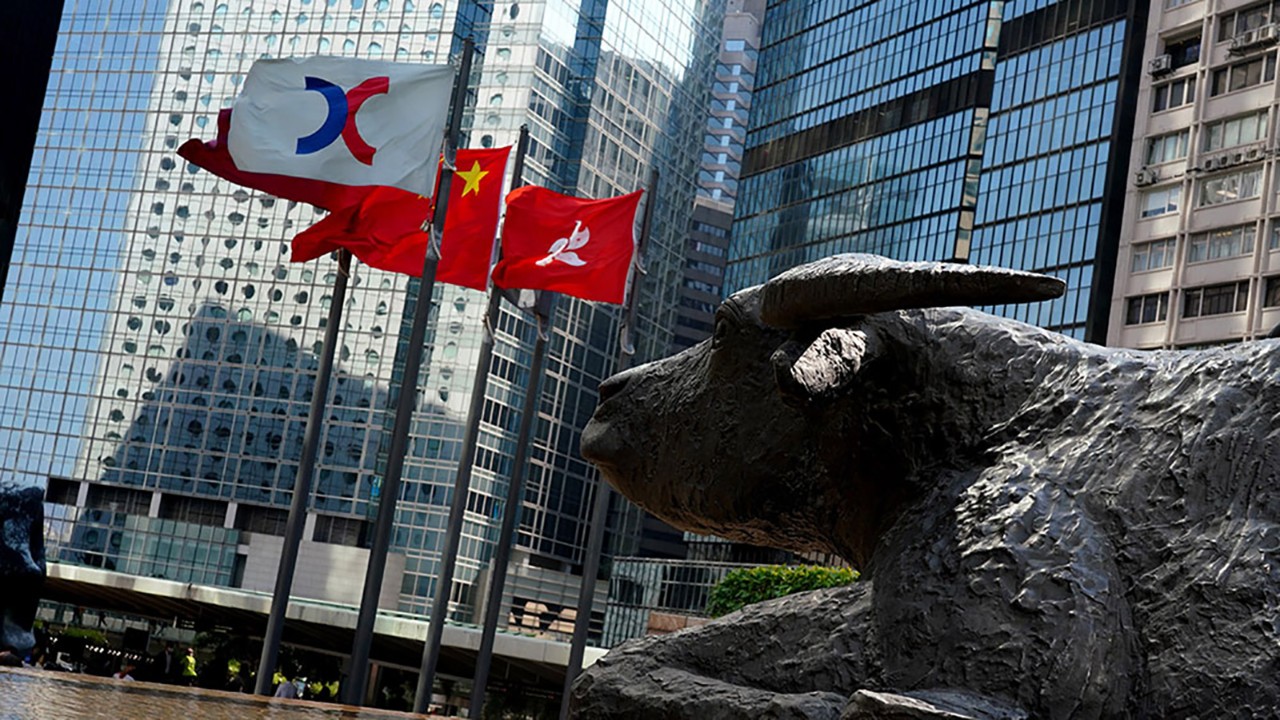
CPD
The launch of a special purpose acquisition company (SPACs) listing regime could give Hong Kong’s stock market a boost similar to the one it received when it allowed pre-profit biotech companies to go public in 2018.
In September, Hong Kong Exchanges and Clearing (HKEX) opened a consultation, which closed on 31 October, seeking market feedback on a proposed SPAC listing regime. The proposal would restrict buying and trading of SPAC securities to professional investors, and requires promoters to meet certain requirements and for at least one promoter licensed with the Securities and Futures Commission (SFC) to hold at least 10% of promoter shares. A SPAC should also raise at least HK$1bn (US$128.37m) through its listing.
SPACs are created with the sole aim of raising capital through an initial public offering (IPO), in order to acquire or merge with another company.
‘Hong Kong is well-positioned, with access to Chinese capital and a sound broad investor base’
‘We want to provide an alternative listing method for issuers instead of replacing the current regime as we do not believe SPACs will necessarily replace the traditional way of listing,’ said Bonnie Chan, head of listings at HKEX, during a press conference. ‘In the US, for example, there have been a lot of SPAC listings but there are still a lot of companies listing via the traditional channel.’
Third-party role
Hong Kong’s proposed regime would also require independent third-party investment of at least 15% to 25% of the expected market capitalisation of the successor company and approval of the transaction by SPAC shareholders, which must be given the option to redeem their shares prior to a de-SPAC transaction, a change in SPAC promoter and any extension to the deadline for finding a suitable de-SPAC target.
A de-SPAC is a transaction that merges the listed SPAC with the target business.
What’s more, should a SPAC be unable to announce a de-SPAC transaction within 24 months or complete one within 36 months, it will be required to liquidate and return all funds raised, with interest. HKEX will then de-list the SPAC.
Tailor made for Hong Kong
In introducing a SPAC listing regime, Hong Kong is following other international markets that have allowed SPAC listings for years. The US, for example, could serve as a model for Hong Kong’s regime.
The implementation of the SPAC regime should benefit accounting and audit firms
‘However, the ecosystem and regulatory environment of the Hong Kong capital market are not the same as those in the US. The US SPAC regime cannot be directly cloned to Hong Kong without tailoring,’ says Louis Lau, a partner in KPMG China’s Capital Markets Advisory Group.
Hong Kong’s proposed SPAC listing regime is more stringent than the one in the US, which is more inclusive in terms of listing and trading requirements.
‘However, Hong Kong is well-positioned, with access to Chinese capital and a sound broad investor base,’ Lau says. ‘It is expected that the finalised rules will balance the views and interests of different market stakeholders.’
‘The design of the SPAC regime needs to tackle certain issues, particularly how a principal-protected product can create value to investors, how sponsors are motivated to look for quality de-SPAC targets and how individual small investors are protected,’ says Philip Law, the southern China leader for Deloitte’s VCPE programme.
One big difference in Hong Kong’s approach is restricting trading in SPACs to professional investors.
‘The current proposed limitation to professional investors is similar to that implemented when the HKEX Growth Enterprise Market (GEM) board was introduced. The original approach taken by the HKEX was reversed and requires all GEM IPOs to include a public offering tranche,’ says Wilson Ko, a partner at law firm Gallant. ‘We need to wait and see if another reversal in their proposal will be made at a later stage.’
Good for accountants
The implementation of the SPAC regime should benefit accounting and audit firms.
‘With the strong demand for new SPAC listings in Asia, professional services firms will need to prepare relevant solutions and allocate resources for upcoming requests from both the SPAC side and de-SPAC targets,’ Law says. ‘Hong Kong might just be at the beginning of the SPAC boom after a successful biotech IPO boom.’
Although Ko agrees on the benefits, he notes that the HK$1bn minimum market capitalisation for SPACs at the time of listing could be a challenge.
‘It appears to benefit mostly Tier 1 accounting firms that may have clients that can achieve valuations making them suitable for de-SPAC targets,’ he says. ‘There is also the initial accounting and audit work to create the SPAC.’
Forward facing
Another challenge facing accounting and auditing firms is the ability to include forward-looking information in the SPAC listing document.
‘The HKEX consultation paper acknowledges that de-SPAC targets are often at an early stage of development, with a financial track record that is not reflective of their growth potential,’ says Ko. ‘However, it will restrict any forward-looking statements unless a profit forecast is included and requires it to be reviewed by the reporting accountants.’
A major hurdle in creating the SPAC listing regime will be generating enough interest from the professional investors allowed to subscribe to and trade SPAC shares. The proposed regime also requires SPACs to attract a minimum of 75 such professional investors and sets the minimum subscription at HK$1m.
With all these requirements, the proposed SPAC listing regime will ‘not offer an easier route for SME companies that desperately need capital,’ says Ko. Case in point is the recently proposed de-SPAC with Artisan Acquisition Corp and Prenetics Group, where the valuation of the de-SPAC target was US$1.7bn.
With Hong Kong tycoons among some of the SPAC’s biggest fans in recent years, the Special Administrative Region will benefit from the introduction of a regulatory regime, predicts Law.
‘However, the key challenge is that Hong Kong regulators are looking to tighten rules to prevent so-called back-door listings and the use of shell companies,’ Law says.
‘A successful SPAC regime requires a balance between stringent regulations and a framework which can attract the participation of most investors while at the same time protecting small investors.’
Asian rivals
While Hong Kong Exchanges and Clearing (HKEX) is at the beginning of the process, the Singapore Exchange (SGX) allowed special purpose acquisition companies (SPACs) to go public from 3 September.
‘The fact that SGX is already ahead of HKEX in allowing SPAC listings will put pressure on the HKEX to approve the SPAC regime as quickly as possible, says Wilson Ko, a partner at law firm Gallant.
‘Hong Kong has always positioned itself as one of the leading international financial centres, yet most international markets already adopted SPAC regimes many years ago.’
Others, however, say that having a robust regime is more important than a fast one.
‘Proper supervision and investors protection have been crucial to Hong Kong’s success and its position as an international financial centre,’ says Louis Lau, a partner in KPMG China’s Capital Markets Advisory Group.
‘Like other major amendments to the listing rules in the past, it is important to go through a comprehensive study, including thorough consultation with market stakeholders. Launching a SPAC listing regime that fits in Hong Kong’s capital market system and environment should be prioritised over racing against other countries.’

